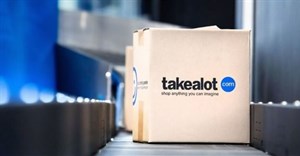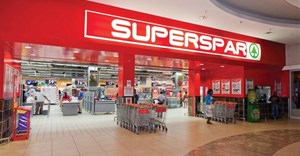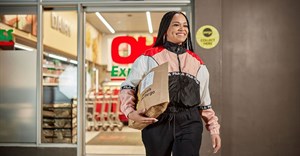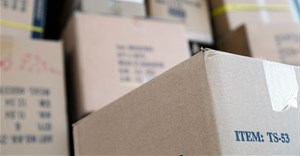#AfricaMonth
Subscribe & Follow
Trending
Elections 2024
Rise of SA e-commerce depends on good delivery

However, South Africa's e-commerce uptake is relatively slow. South African internet users spent only R3.3 billion shopping online in 2012 (that's about 0.03% of the global figure) but that amount is expected to grow by 25% this year to R4.4 billion.
This low number can be attributed primarily to low internet penetration. The Census 2011 report revealed that a shade under two-thirds of households do not have internet access, which dovetails neatly with an estimated smartphone penetration of around 30%. Of those households with internet access, almost half have access through a cellphone and only a quarter have an internet connection at home (the rest either connect at work or from various other sources).
Slow uptake in SA
Mirroring this slow uptake, a recent MasterCard Online Shopping Survey showed that roughly seven million South Africans (only 14% of the population and just less than 50% of those with access to the internet) have bought something online at one time or another (in comparison to 66% of the population in the UK or 88% of internet users in the US).
Of these South African online shoppers, 45% bought mobile apps, 40% have purchased books with slightly less, around 34%, CDs, DVDs or MP3s. Roughly 32% pay for travel online and between 10% and 20% buy tickets for the cinema, toys, games, computers and clothes online. About 10% of South African online shoppers have purchased cars, bikes, TVs, or running shoes online.
While South Africa's e-commerce penetration is quite small, its customer satisfaction in generally quite high. Most buyers (91% according to MasterCard) have been satisfied with their experience with three-quarters of online shoppers sighting convenience as their primary motive for shopping online. Once the purchase has been made, the speed and condition in which the goods arrive at their destination is an essential ingredient in customer satisfaction. While South Africa might not have first-world levels of internet penetration those with internet access have first-world expectations. This means that the convenience of buying online needs to include receiving a purchase in a similar time frame.
Same-day delivery in 2014
Reports indicate that same-day delivery will become a South African reality in 2014. This will require seamless automation between retailers and delivery services which, along with ever increasing petrol prices, further add to the expense of setting up a high-end retail system. How businesses manage these expenses, particularly in relation to customer expectations will be key to growth across the whole sector.
"Exceptionally difficult," is how Mike Cotterell, GM - Pick n Pay Online Shopping, describes the process the supermarket chain went through to set up its own delivery system, which offers its customers a one-hour delivery window. Its development required a complex logistical model and a bespoke IT and delivery solution. "We deal in perishable items and therefore need to ensure that the cold chain remains intact. This is not a service you can simply go out into the market place and buy off the shelf."
One of the great challenges that it faced was offering a paid-for service in a market which he describes as being, "(dangerously) awash with free delivery offers from online retailers.
"Online retail prices are either the same as store prices or cheaper; thus pricing is not an effective or available mechanism to claw back gross margin. Online retailers are simply taking a chunk of net margin out of their businesses by giving away free delivery. In many cases this will simply make them unprofitable - if not yet, in the longer term, as delivery costs increase. You either need to have exceptionally high margins or very deep pockets to consistently offer free delivery as a standard feature. This may be less impactful for larger players but will make it especially difficult for newcomers to the channel and we need new online businesses to build critical mass."
But not everyone has the ability to set up custom delivery services, as Noel Ross-Gillespie, operations engineer at Yuppiechef.co.za explains, "We do not deliver ourselves and don't imagine a scenario in which this would make sense given the enormous complexities of operating this properly."
While Yuppiechef predominantly make use of a single courier service, Ross-Gillespie goes on to explain the general terms of delivery for a local internet retail site. "South Africa poses some complexities - mostly relating to the vast geographical distribution of orders - and this translates to some significant variances in delivery costs. Additionally, most delivery networks eventually rely on third party agents, and this can also introduce a lack of visibility over the 'last mile', something that is necessarily important for us to watch to ensure overall customer satisfaction. Generally speaking, for 'super-regional' deliveries (farms for example), we will likely opt for the Post Office and make certain we don't over-promise on the delivery times".
Courier services
From the delivery perspective, the worldwide express courier service SkyNet has found itself being drawn increasingly into the e-commerce sector. According to Diederick Stopforth, the national sales and marketing manager, it began with online retail five years ago, but its involvement over the past two years has been on a significant scale, having worked with several of the industry's major players, most recently Takealot.com and smaller retailers, offering standard as well as customised solutions.
"This landscape has most certainly changed with about three e-commerce sites a week approaching the company. What is amazing about this is that these are mostly SME guys starting their own businesses. The exciting thing is that someone who owns a gift shop in Phalaborwa can now sell goods to someone who stays in Paarl. By opening a website, these SMEs now extend their geographical market or footprint beyond their physical presence."
Eugene Swanepoel, GM for SkyNet adds, "Successful players in this space will be those that have the agility to partner the retail channels from both an IT perspective and operationally. Full integration is required in terms of people, technology and process."
He emphasises the need for logistics partners in the online retail space to understand the needs and demands of their users and clients at the end of the chain, adding that delivery of the product alone is no longer sufficient but that automated processes - running seamlessly in the background - have become essential in managing client and user expectations, ensuring that relevant information with regards to the status of any delivery is being constantly delivered alongside the physical delivery itself. "This will require a paradigm shift of some note," he concludes.



















